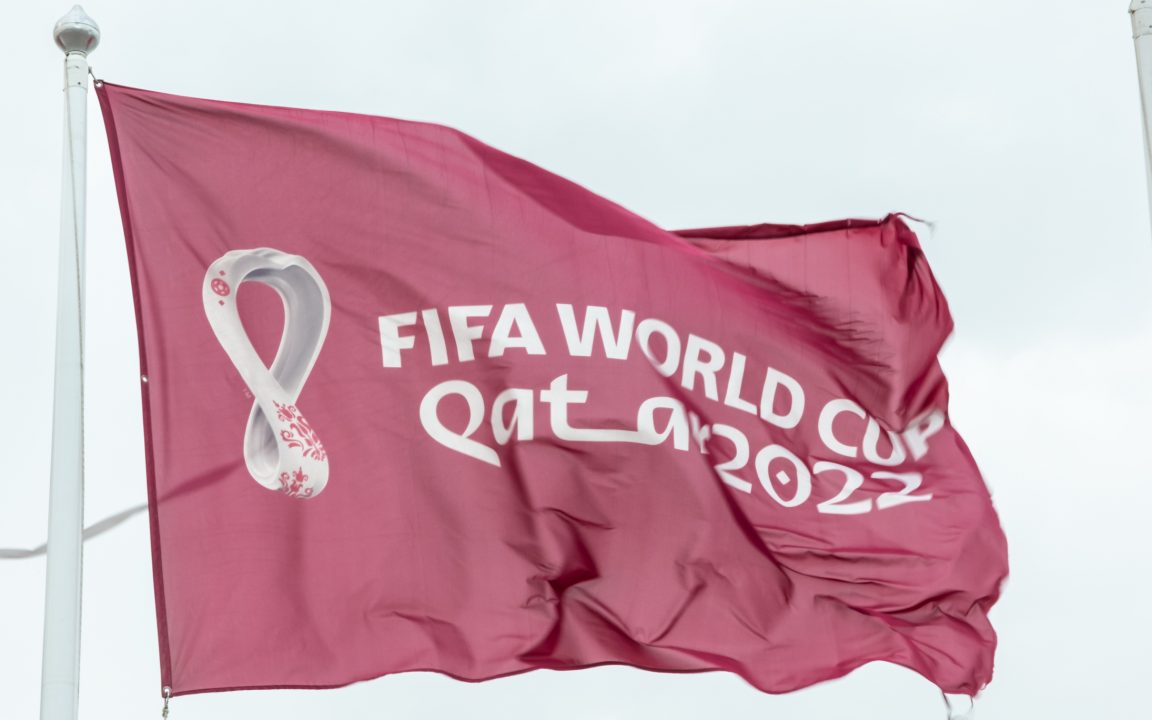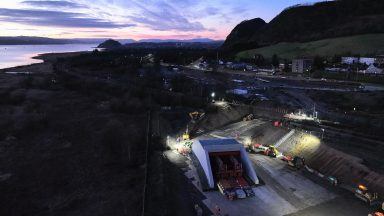FIFA is facing fresh calls to take “urgent and concrete action” to remedy abuse suffered by World Cup migrant workers in Qatar.
Football’s world governing body has been urged by human rights group Amnesty International to publish a review it began in March of whether existing remedies were sufficient.
A workers’ representative quoted in a new Amnesty report, A Legacy In Jeopardy, said: “FIFA talked a lot before the World Cup about workers’ welfare, but now, a year after, nothing has happened – it was all talk.”
Amnesty said the outcome of the review was unclear at the time of the report’s writing, but that FIFA had indicated it would be published in the near future.
“If FIFA is to prove its critics wrong, it should publish the findings of its review and commit to take urgent and concrete action to ensure access to remedy for victims,” the report said.
The report also set out some of the abuse suffered by migrant workers during last year’s finals and highlighted what Amnesty says is a continued failure by the Qatari government to fully implement and enforce labour reforms introduced in 2017.
According to research by the Business and Human Rights Resource Centre (BHRRC) based on the experiences of 73 World Cup migrant workers and quoted in the Amnesty report, all had paid recruitment fees ranging from 164 US dollars (£132) and 4,670 US dollars (£3,757), with almost two-thirds taking out loans to do so.
The report found most then discovered the jobs were not what they had been promised, while some had overtime pay withheld and were unable to raise grievances without fear of reprisal.
The report also highlights evidence that although ‘No Objection Certificates’ – which required a worker to obtain permission from their current employer to change jobs – are no longer legally required, in practice some form of permission is still sought by companies seeking to recruit new staff.
One diplomat from a workers’ country embassy in Qatar told the report’s authors that the prevailing conditions still kept migrant workers “in a headlock”.
The report also highlights an independent audit commissioned by the World Cup’s Supreme Committee for Delivery and Legacy which found severe instances of “scolding, racism, sexual harassment and favouritism”, particularly among World Cup workers in the hospitality sector.
Amnesty did point out that not all migrant workers’ experiences had been negative. Nepali workers serving food and beverages at a World Cup stadium told Amnesty they had not incurred recruitment fees to take their jobs, were paid on time and in full during the tournament and were housed in decent accommodation.
“Despite significant changes in legal frameworks, abuses persist on a significant scale, while remedy from both Qatar and FIFA remains out of reach for so many workers,” the report stated in its conclusion.
“For years, both FIFA and Qatar preferred to deflect and deny their responsibility for human rights abuses, before belatedly changing course when FIFA published its human rights policy and Qatar signed the ILO agreement.
“However, even then, their actions were too little too late to prevent widespread abuses as the tournament kicked off, and the same can be said one year on.”
A FIFA spokesperson said: “The Human Rights and Social Responsibility Sub-Committee has undertaken to conduct an independent assessment on whether the steps FIFA has taken to date with regard to access to remedy of workers in the context of the FIFA World Cup Qatar 2022 are in line with FIFA’s human rights commitments and responsibilities under relevant international standards and whether additional steps would be recommended in view of further strengthening the tournament’s legacy for migrant workers.
“This work of the Sub-Committee is currently ongoing.”
Qatar’s International Media Office said the World Cup had accelerated labour reforms in the country, creating a “significant and lasting” tournament legacy.
“Qatar now leads the region on workers’ rights and labour reforms, setting an example for other countries on how a system can be successfully overhauled,” the statement continued.
“Qatar has further strengthened its labour system since the end of the tournament. Existing reforms continue to be fully implemented. Between January and August 2023, over 153,000 workers successfully transferred to new employers.
“The commitment to strengthen Qatar’s labour system and safeguard workers’ rights was never an initiative tied to the World Cup and was always intended to continue long after the tournament ended.
“The positive impact of Qatar’s labour reforms is evident for all to see: the region’s first non-discriminatory minimum wage, 97 percent of all salaries protected through the Wage Protection System, the removal of barriers to change jobs, a simplified complaints mechanism and easier access to justice, stricter enforcement including a crackdown on the payment of illegal recruitment fees, increased awareness of workers’ rights, region-leading health and safety standards on-site and in accommodations, and regular health screenings to identify underlying conditions.
“One year on from the World Cup, Qatar’s commitment to labour reform remains as strong as ever as we strive to establish a world-leading labour system that attracts people from all over the world to live and work in Qatar.”
Follow STV News on WhatsApp
Scan the QR code on your mobile device for all the latest news from around the country



 iStock
iStock
























